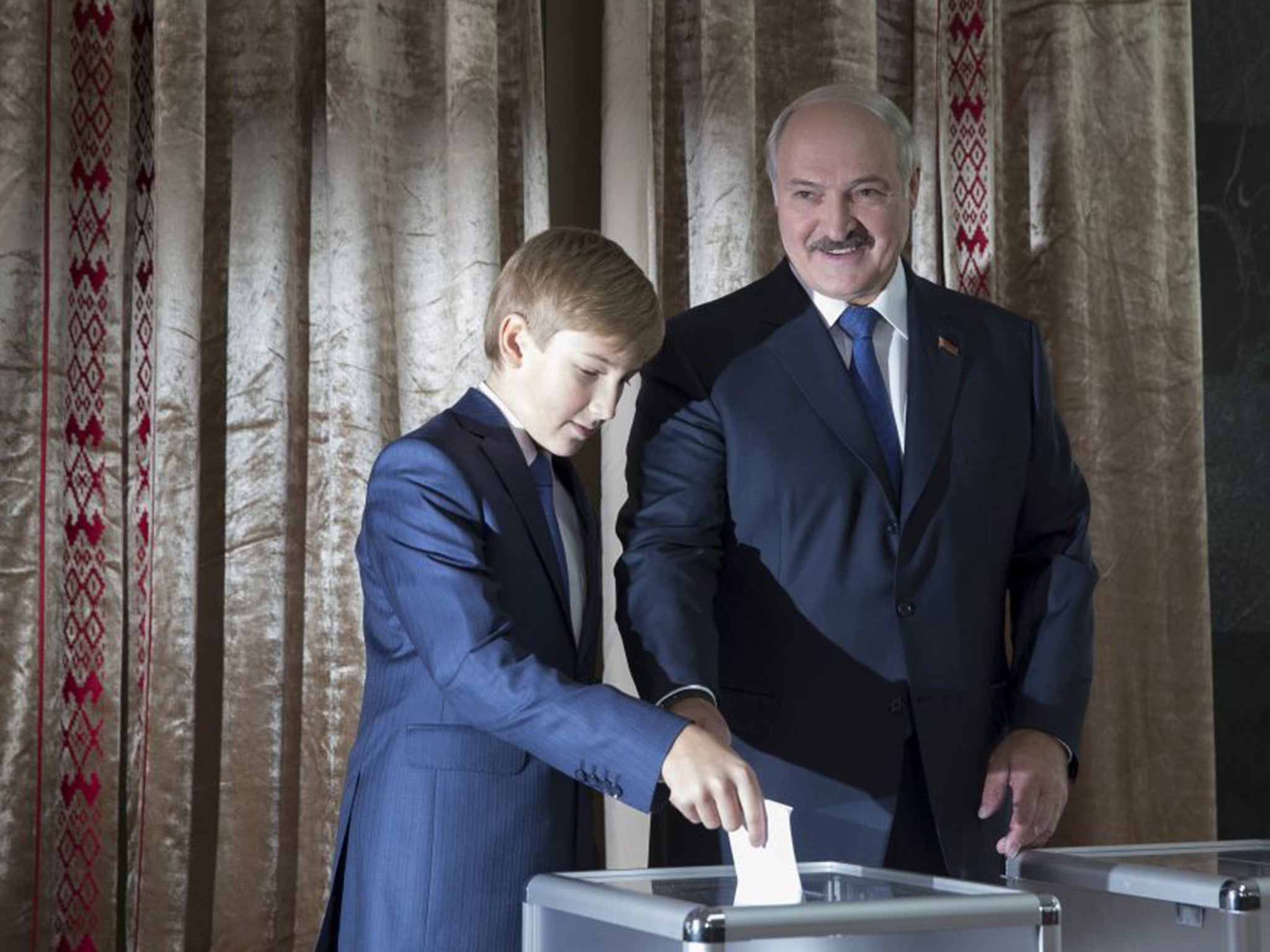Alexander Lukashenko: Europe’s ‘last dictator’ proves predictable hit with Belarus voters
In his 21 years of rule, Mr Lukashenko has cracked down on dissent while cultivating an image of a strong leader

Flanked by his ever-present 11-year-old son Nikolai, Alexander Lukashenko, Europe’s “last dictator” was in confident mood on Sunday. He had good reason to be.
The leader of Belarus faced no serious competition in the election and was expected easily to win a fifth term. The opposition called for a boycott of the vote.
Even before polls opened in the former Soviet republic, however, the Central Election Commission announced that 36 per cent of the seven million registered voters had cast their ballots during five days of early voting. Opposition leaders denounced the early voting as an ideal instrument for falsifying the result.
Mr Lukashenko said it would be a bad sign if he received fewer votes than during the last election in 2010, when he won 80 per cent.
Oh, life has become harder, but Lukashenko promises stability and peace
“That would mean that people were beginning to move away and were dissatisfied with some of my policies,” the president said after voting in Minsk.
Mr Lukashenko appeared at the polling station with son Nikolai, who was wearing the same suit and tie as his father. An independent institute of socio-economic and political research put Mr Lukashenko’s support at about 46 per cent in September, while the official state sociology institute tallied his support at 76 per cent.
Mr Lukashenko faced three nominal rivals in the election: the leaders of two pro-government parties, Sergei Gaidukevich and Nikolai Ulakhovich, and little known opposition activist Tatyana Korotkevich. Prominent opposition figures either were barred from running or decided against trying to get on the ballot for an election they considered a farce.
In his 21 years of rule, Mr Lukashenko has cracked down on dissent while cultivating an image of a strong leader capable of guaranteeing order and stability. “Oh, life has become harder, but Lukashenko promises stability and peace,” said 68-year-old Tamara Krylovich after voting in Minsk. “Look at what democracy brought in Ukraine – war and poverty.”
Mr Lukashenko has largely preserved the state-controlled Soviet type of economy, albeit with the help of cheap Russian gas and Western loans. The unreformed economy may be spluttering, but it still puts bread on the tables of pensioners and workers at unprofitable state factories. But Anton Gurevich, a 41-year-old automobile factory worker, said it was time for a change. “I have lived half of my life with Lukashenko, but life has not gotten better,” he said. “There should be changes.”
Mr Lukashenko said he was prepared to introduce economic reforms if the Belarusian people were prepared for the difficulties they would bring. “If you give me carte blanche for any destruction and any revolutionary transformations, if that is what you want, then for God’s sake we will do it,” he said. “The issue is not me, the issue is society.”
AP
Subscribe to Independent Premium to bookmark this article
Want to bookmark your favourite articles and stories to read or reference later? Start your Independent Premium subscription today.

Join our commenting forum
Join thought-provoking conversations, follow other Independent readers and see their replies